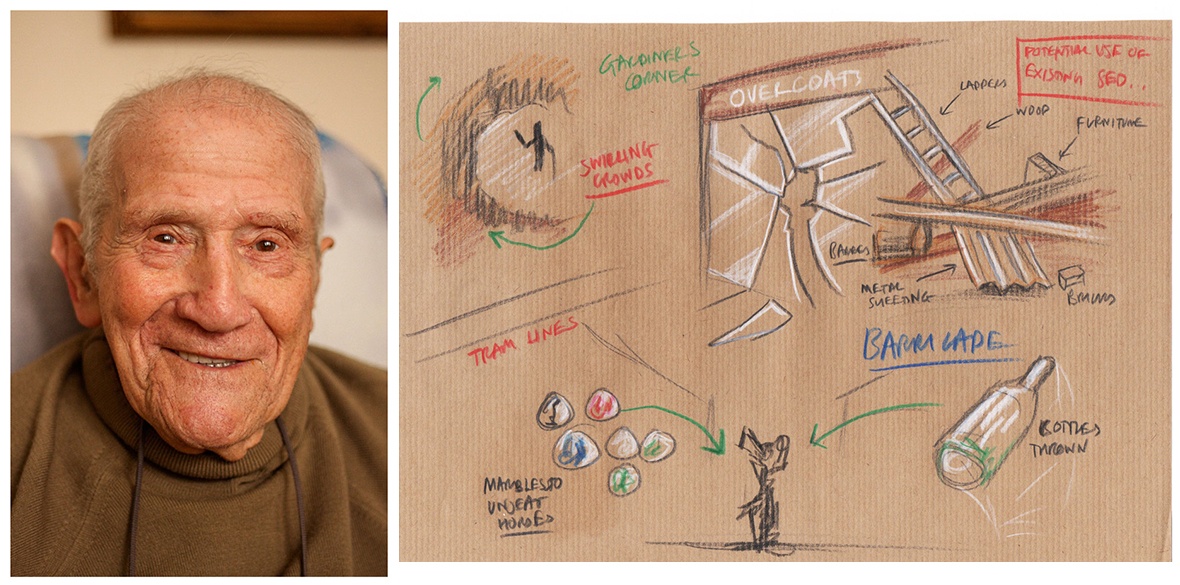This is the last article you can read this month
You can read more article this month
You can read more articles this month
Sorry your limit is up for this month
Reset on:
Please help support the Morning Star by subscribing here
THE Battle of Cable Street resonates as a vital moment in radical history, with the stories of those who fought there living on for future generations. The 1936 clash, between working-class people of London’s East End and Oswald Mosley’s British Union of Fascists, has attracted much attention from musicians and actors.
From the mid-1980s, when folk-punk band The Men They Couldn’t Hang gave us the anthemic The Ghosts of Cable Street, through to folkies The Young ‘Uns creating a new song, Cable Street, as part of their show about the anti-fascist Johnny Longstaff. A few years ago, the inimitable Stephen Berkoff staged his verse play, They Shall Not Pass, and this year sees the continued run of The Merchant of Venice 1936, transposed to the East End, and Tracy-Ann Oberman as Shylock, as fascists threaten the community.
This month sees a very different treatment, as Cable Street, a new musical, has its world premiere in London. There’s a young and talented cast, rehearsals have been packed with energy, and award-winning composer/lyricist Tim Gilvin has worked alongside writer Alex Kanefsky in creating a fresh perspective on this febrile time.
Kanefsky’s grandmother witnessed the street fighting. He says: “I’d always been fascinated by the story of Battle of Cable Street. My family have roots in the East End, and when I came to live here, following in their footsteps, I found myself cycling down Cable Street itself. I stopped to look at the huge mural showing the battle, and it took my breath away.”
All of us who’ve stood before the artwork would agree. It’s a swirling, churning behemoth, with violence and humour juxtaposed. Fists, truncheons and missiles fly, as Hitler is depicted in his underwear.
Imagine having the challenge of taking all that splendour and scrapping, and rendering it as the set for this new musical. It must be attention-grabbing, it must relate to the action, and it must be safe for actors.
Step forward Yoav Segal, who has quite the pedigree in writing, producing, directing, and set designing. As well as working with Hope Not Hate, and Comic Relief, Segal made the short film, with Freedom from Torture, which featured Holocaust survivor Steven Frank, calling on the government to show refugees more humanity. Projected on the white cliffs of Dover by campaign group Led By Donkeys, the film has been viewed millions of times.
He was always drawn to social action themes, and credits one man with this inspiration, and gift of storytelling: his grandfather Ubby Cowan, who knew a thing or two about the famous battle. He was there, in the thick of it, in his new Max Baer-style jacket which ended the day in shreds, and Cowan covered in blood, after being kicked through the window of a shop by a police horse.
Says Segal: “My grandfather took me down to Cable Street in my teens, and then in my 20s I made a film with him, and toured about with him, telling the story – and doing it lots in the left-wing, and communist, community.
“He was an unbelievable storyteller, he was a lifelong orator – and Cable Street was his story.”
The mini documentary is a superb testimony to collective power, and to the outrage felt by so many hard-working people. Cowan had heard Mosley shouting “about how terrible we were and how the Jews were oppressing everybody; an anti-semitic tirade. Well, we objected to it!”
He and his friends started organising anti-fascist meetings, knowing that these would be deemed illegal. He says, in his grandson’s film: “Sometimes you have to do the wrong thing, to get the right thing done.”
The set for the new musical encompasses all the communities who stood together on that fateful October 4: Jews, communists, Irish dockers. Segal elaborates on this: “The set is made up of all things from the community; you can feel them coming together, and... there’s a lot of metal, wood... rugged worker materiality. A lot of the play takes place indoors, but then the outside invades – the floor is wood, but then with tarmac invading that space.
“It’s in the round, so the audience will feel very, very close to all the action; it’ll feel very present.”
I asked Segal what his beloved grandfather would make of the political situation today.
“He’d have been disgusted, because it’s the same old shit: rabble-rousing, lying politicians, it’s ‘othering’ people... and doing it all for political gain. My grandad hated that stuff.”
Proof that the ghosts of Cable Street speak to us, still. Ubby Cowan and Yoav Segal, making new memories, all wrapped up with the old, and making them a very present rallying call.
Cable Street runs at The Large, Southwark Playhouse, from February 16 to March 16. For more information see: southwarkplayhouse.co.uk












